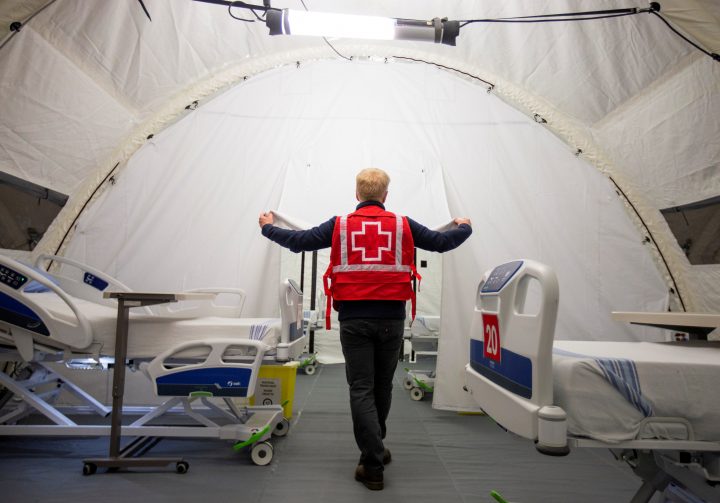The Métis Nation–Saskatchewan (MN-S) says it is “gravely concerned” about the spread of COVID-19 in Saskatchewan’s north, and is calling on all levels of government to help its people.

“We need to work together to get out in front of the crisis and provide additional capacity not only for those affected by the crisis today but for the anticipated surge in the outbreak in the north in the coming weeks,” said MN-S Health Minister Marg Frisen in a statement.
“This is becoming a humanitarian issue.”
MN-S President Glen McCallum said he has not ruled out calling on the Red Cross and other emergency response units for field operations.
“This is a concerning situation that affects the welfare and well-being of people and communities. People are ill. Elders are being lost. This is an emergency. The operations to respond need to be in place,” McCallum said in a statement.
The MN-S has taken steps to stop the spread of the novel coronavirus, including declaring a state of emergency, allocating $20 million towards relief efforts and restricting access to the north. However, McCallum says it’s still not enough as people need PPE, food security, mobile isolation units and people to manage check stops in the north.
There are four novel coronavirus outbreaks in Saskatchewan’s north.
La Loche was the first to have an outbreak of COVID-19, which was declared on April 17. According to the Northern Village of La Loche, there have been 80 cases in their area, which include the Clearwater River Dene Nation.
The outbreak is mainly from employees returning home from work camps in the oil and gas industry in Alberta, just north of Fort McMurray. Other cases have been linked to a health-care worker who travelled from Saskatoon.
There are also outbreaks in Lloydminster and Prince Albert which stemmed from the virus being spread from its hospitals.
- ‘She gets to be 10’: Ontario child’s heart donated to girl the same age
- Bird flu risk to humans an ‘enormous concern,’ WHO says. Here’s what to know
- Shoppers faces proposed class action over claims company is ‘abusive’ to pharmacists
- Most Canadian youth visit dentists, but lack of insurance a barrier
The fourth outbreak was declared in Beauval on May 1. This outbreak is linked to the Beauval General Store after an employee tested positive for coronavirus on April 28. The MN-S has been part of the incident command centre established in Beauval to coordinate help.
More than half of the province’s active cases are in the northern region. Of the 122 active cases in the province, 68 are in the far north and 31 are in the north.
The MN-S has been working with provincial ministers and the premier but said there’s still potential for disaster in the north.
“The challenges in the north call for the immediate response of all levels of government to respond proactively to minimize the spread of the virus before it reaches unmanageable proportions,” McCallum said.
Checkpoints have been established in northern Saskatchewan and a travel ban is in effect. Social housing units have been set up for those who need to self-isolate. Additionally, a GeneXpert testing unit has been provided to La Loche, as has additional PPE.
Regular COVID-19 updates are being provided on radios across the north in four languages: English, Cree, Dene and Michif.
“Even though Saskatchewan has successfully reduced the spread of COVID-19, unfortunately, we can expect to experience isolated outbreaks,” Premier Scott Moe said earlier this week at a press conference.
“Our health system and our government is prepared to take immediate action to respond to these outbreaks and that’s what we are doing today in the north.”
Questions about COVID-19? Here are some things you need to know:
Health officials caution against all international travel. Returning travellers are legally obligated to self-isolate for 14 days, beginning March 26, in case they develop symptoms and to prevent spreading the virus to others. Some provinces and territories have also implemented additional recommendations or enforcement measures to ensure those returning to the area self-isolate.
Symptoms can include fever, cough and difficulty breathing — very similar to a cold or flu. Some people can develop a more severe illness. People most at risk of this include older adults and people with severe chronic medical conditions like heart, lung or kidney disease. If you develop symptoms, contact public health authorities.
To prevent the virus from spreading, experts recommend frequent handwashing and coughing into your sleeve. They also recommend minimizing contact with others, staying home as much as possible and maintaining a distance of two metres from other people if you go out.
For full COVID-19 coverage from Global News, click here.









Comments